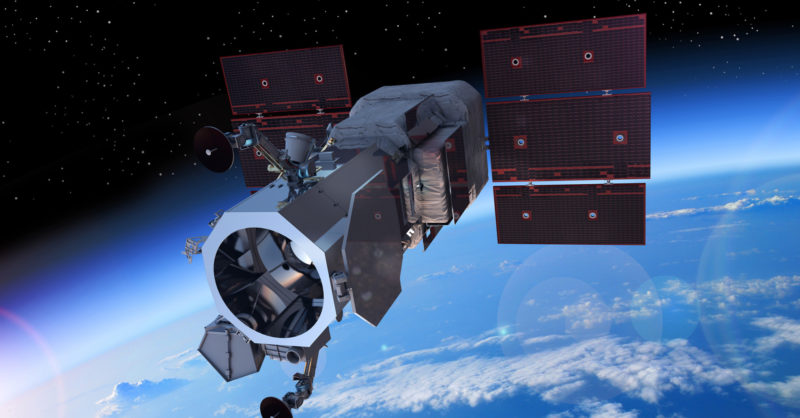Introduction
In the vast expanse of outer space, where the secrets of the universe unfold, human-made satellites play a crucial role in communication, navigation, weather monitoring, and scientific exploration. However, as our dependency on satellite technology grows, so does the need to ensure the safety and security of these vital assets. Enter SatelliteSafe, a cutting-edge initiative dedicated to safeguarding space technologies and preserving the integrity of the Earth’s orbital environment.

I. The Significance of Satellite Technology
Before delving into SatelliteSafe, it is essential to understand the pivotal role satellites play in modern life. From global communication networks to weather forecasting and Earth observation, satellites are the unsung heroes orbiting overhead. The increasing reliance on these technologies necessitates a comprehensive approach to protect them from various threats, both natural and human-induced.
II. Threats to Space Technologies
A. Space Debris
One of the most pressing concerns in space technology is the growing amount of space debris. Derelict satellites, spent rocket stages, and fragments from collisions pose a threat to operational satellites. SatelliteSafe addresses this issue by promoting responsible space practices, including the development of debris mitigation measures and the implementation of end-of-life disposal strategies.
B. Cybersecurity Risks
In an era dominated by connectivity, satellites are vulnerable to cyber threats. The potential for unauthorized access, data breaches, and interference with satellite operations requires a robust cybersecurity framework. SatelliteSafe incorporates advanced encryption protocols, secure communication channels, and continuous monitoring to mitigate cybersecurity risks and ensure the integrity of satellite data.
C. Space Weather
Space weather events, such as solar flares and geomagnetic storms, can impact satellite operations. SatelliteSafe integrates space weather monitoring systems to provide early warnings and protective measures, allowing satellite operators to adjust their systems and prevent potential damage.
III. The SatelliteSafe Initiative
A. Collaborative Efforts
SatelliteSafe is not a singular entity but a collaborative initiative involving governments, space agencies, private companies, and international organizations. This collaborative approach ensures a comprehensive and global effort to address the challenges faced by satellite technologies.
B. Debris Mitigation Strategies
SatelliteSafe focuses on implementing and promoting debris mitigation strategies to prevent the creation of additional space debris. This includes designing satellites with deorbit capabilities, avoiding collisions through improved tracking, and encouraging responsible satellite disposal practices.
C. Cybersecurity Measures
To counter the rising threat of cyberattacks on satellites, SatelliteSafe promotes the adoption of state-of-the-art cybersecurity measures. This includes the implementation of secure communication protocols, regular security audits, and the development of response plans to mitigate the impact of potential breaches.
D. Space Weather Monitoring
SatelliteSafe incorporates advanced space weather monitoring systems to track and predict space weather events. This proactive approach allows satellite operators to take preventive measures, such as temporarily shutting down non-essential systems during heightened space weather activity.
IV. Technological Innovations in SatelliteSafe
A. Autonomous Collision Avoidance
SatelliteSafe leverages artificial intelligence and machine learning algorithms to enable autonomous collision avoidance. Satellites equipped with these systems can analyze incoming data in real-time and make split-second decisions to maneuver and avoid potential collisions with space debris or other satellites.
B. Quantum Key Distribution for Secure Communication
In the realm of satellite communication, securing data transmission is paramount. SatelliteSafe incorporates quantum key distribution, a cutting-edge technology that uses the principles of quantum mechanics to secure communication channels. This ensures that satellite data remains confidential and immune to interception by malicious entities.
C. Solar Sail Technology for Deorbiting
SatelliteSafe embraces innovative approaches to satellite disposal, such as the use of solar sail technology. Solar sails harness the pressure of sunlight to propel satellites into lower orbits, facilitating their natural deorbiting process without the need for traditional propulsion systems.
V. International Regulations and Standards
A. United Nations Committee on the Peaceful Uses of Outer Space (COPUOS)
SatelliteSafe aligns with the guidelines and recommendations set by COPUOS, a United Nations committee dedicated to promoting international cooperation in the peaceful use of outer space. This ensures that the initiative operates within a framework that considers the interests of all spacefaring nations.
B. International Collaboration Agreements
SatelliteSafe facilitates international collaboration through agreements and partnerships between space agencies, governments, and private entities. These collaborations foster information sharing, joint research and development, and mutual assistance in addressing common challenges faced by satellites in orbit.
VI. Future Prospects of SatelliteSafe
A. Space Traffic Management
As the number of satellites in orbit continues to grow, SatelliteSafe envisions playing a pivotal role in developing and implementing space traffic management systems. These systems will help prevent collisions, minimize space debris generation, and ensure the orderly use of orbital space.
B. Advancements in Satellite Security
SatelliteSafe remains committed to staying ahead of emerging threats by continually advancing satellite security technologies. This includes ongoing research and development efforts to address evolving cybersecurity risks and adopting state-of-the-art encryption methods.
C. Sustainable Satellite Operations
With a focus on sustainability, SatelliteSafe promotes the development of satellites with longer operational lifespans and reduced environmental impact. This includes the use of eco-friendly materials, energy-efficient propulsion systems, and responsible end-of-life disposal practices.
Conclusion
In the ever-evolving landscape of space technology, SatelliteSafe stands as a beacon of innovation and collaboration. By addressing the multifaceted challenges posed by space debris, cybersecurity risks, and space weather, this initiative paves the way for a safer and more sustainable future in outer space. Through international cooperation, technological advancements, and adherence to best practices, SatelliteSafe ensures that the benefits derived from satellite technologies continue to enrich our lives while preserving the celestial environment for generations to come.
